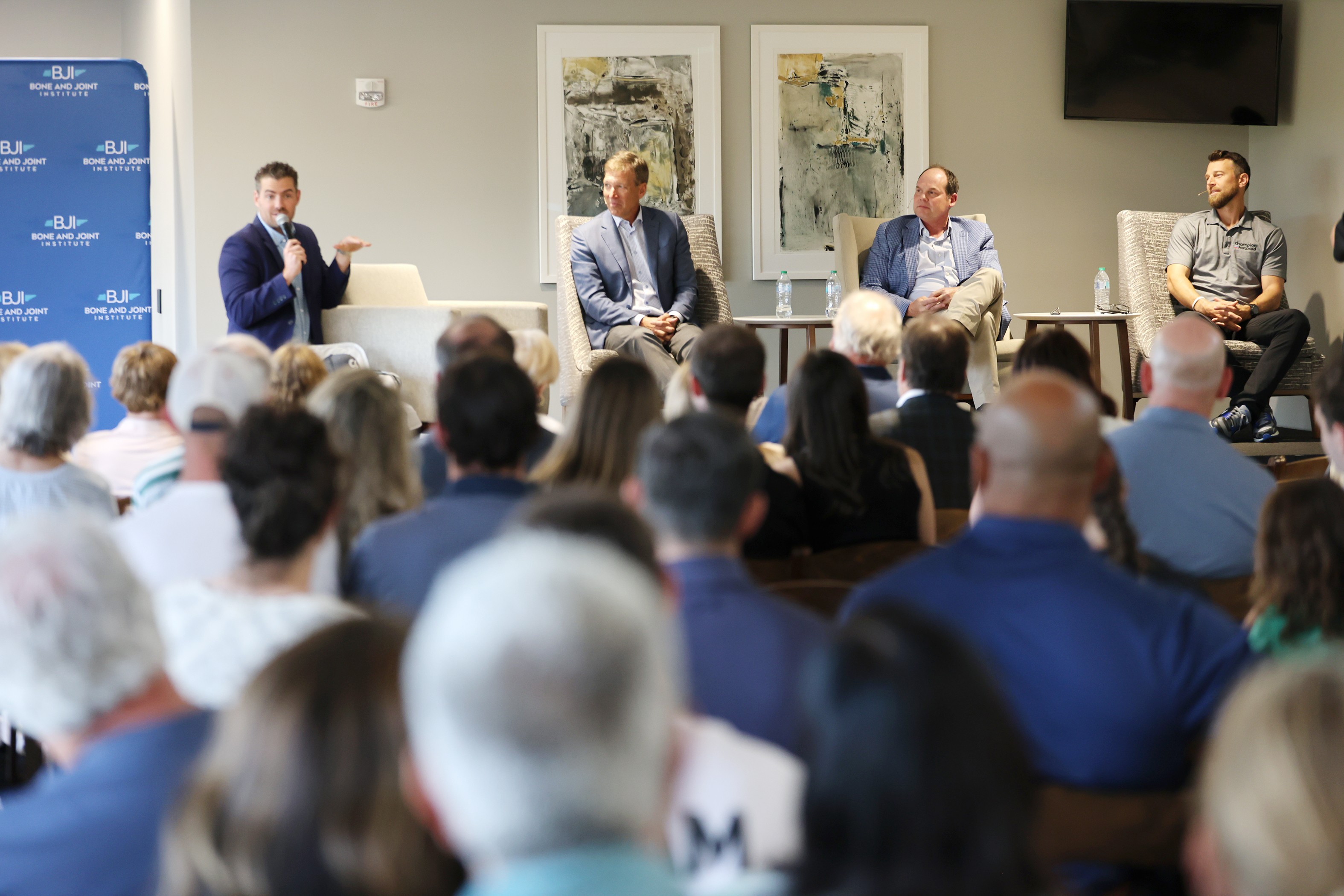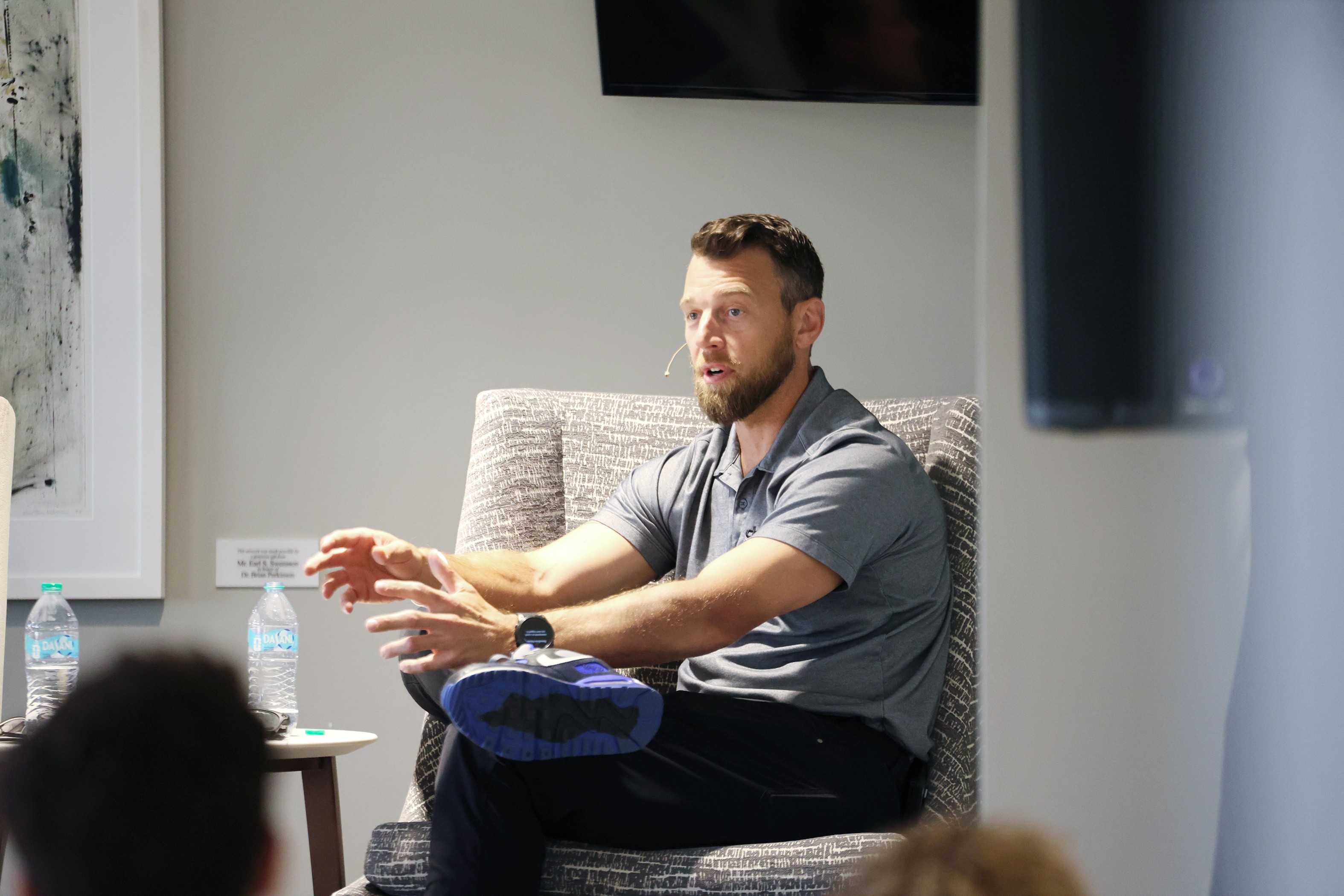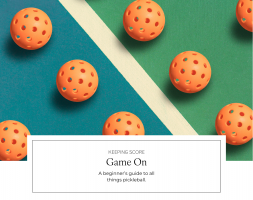
.png)
Encouraging Athletes and Families to Prioritize Emotional Recovery as Much as Physical Healing
with Williamson Health
For student-athletes, a torn ACL or dislocated shoulder can end a season—but the emotional fallout can last even longer.
“Many times we first meet a patient at the point of their greatest disappointment,” said Colin Looney, M.D., an orthopaedic surgeon at Bone and Joint Institute of Tennessee, part of the Williamson Health regional healthcare system. “We have to remind our patients that this is a season-ending injury, not a career-ending injury.”
Dr. Looney joined fellow panelists, Allen Sills, M.D., chief medical officer of the NFL, and former Major League Baseball player Ben Zobrist, founder of Champion Forward, at the recent “Connect. Compete. Care.” event hosted by the Williamson Health Foundation at Bone and Joint Institute. The event highlighted the often-overlooked mental health challenges athletes face when sidelined by injury.
Ben, the 2016 World Series MVP, spoke about the pressure of the spotlight—and its toll on mental health.
“That forced me into a scenario where I had to deal with a lot more than I expected,” Ben said, reflecting on his 2016 MVP nod. “It felt like a weight that I had to carry where I wanted to say yes to everything, and I didn’t have healthy boundaries.”
Mental and emotional health in recovery is vital for every athlete, but especially critical when identity is tied to performance.
“Fifty percent of athletes will have a major depressive episode while recovering from an injury,” Dr. Looney said.
Ben called this a “hero to human” moment. In these situations, the panelists stressed the importance of focusing on hope.
“Hope is everything we do in medicine,” said Dr. Sills, professor of neurological surgery at Vanderbilt University Medical Center and a practicing neurosurgeon. “It is an essential part of recovery, and hope gets us out of bed every day to do the things that we do.”
Dr. Looney, a former two-sport collegiate athlete and current team physician for Battle Ground Academy and Centennial High School in Franklin, encouraged athletes healing from an injury to set smaller, short-term goals that allow them to celebrate progress along the way.
“If all you’re thinking about is getting back on the field in nine months, that’s overwhelming,” he said.
He also encouraged athletes and parents to adopt a collaborative team approach, fostering connections that enable them to speak up if an athlete appears to be struggling. An “ecosystem of care” should include parents, athletes, and care team members—physical therapists, physicians, coaches and athletic trainers—invested in the whole patient.
“Everybody in the sports community needs to have a little bit of awareness and sensitivity,” Dr. Sills said. “You don’t have to be a mental health expert to say, ‘You know what? It looks like that kid’s struggling. Something’s going on there. Let’s make sure to connect them to someone.’”
That includes recognizing signs of depression—such as mood swings, fatigue, appetite changes or withdrawal—and helping athletes and parents develop a “growth mindset” and find ways to “regulate emotions,” according to Ben.
“We have to talk to ourselves in a positive way, and sometimes as parents we have to turn around their negative self-talk and say, ‘Hey, you know, you’re OK,’” he said.
With the right support, a season-ending injury doesn’t have to be the end of the story—it can be the moment an athlete discovers new strengths, deeper resilience and a healthier perspective. Learn more at williamsonhealth.org, boneandjointtn.org and championforward.org. To learn more about local mental health resources, visit findhopefranklin.com.



















